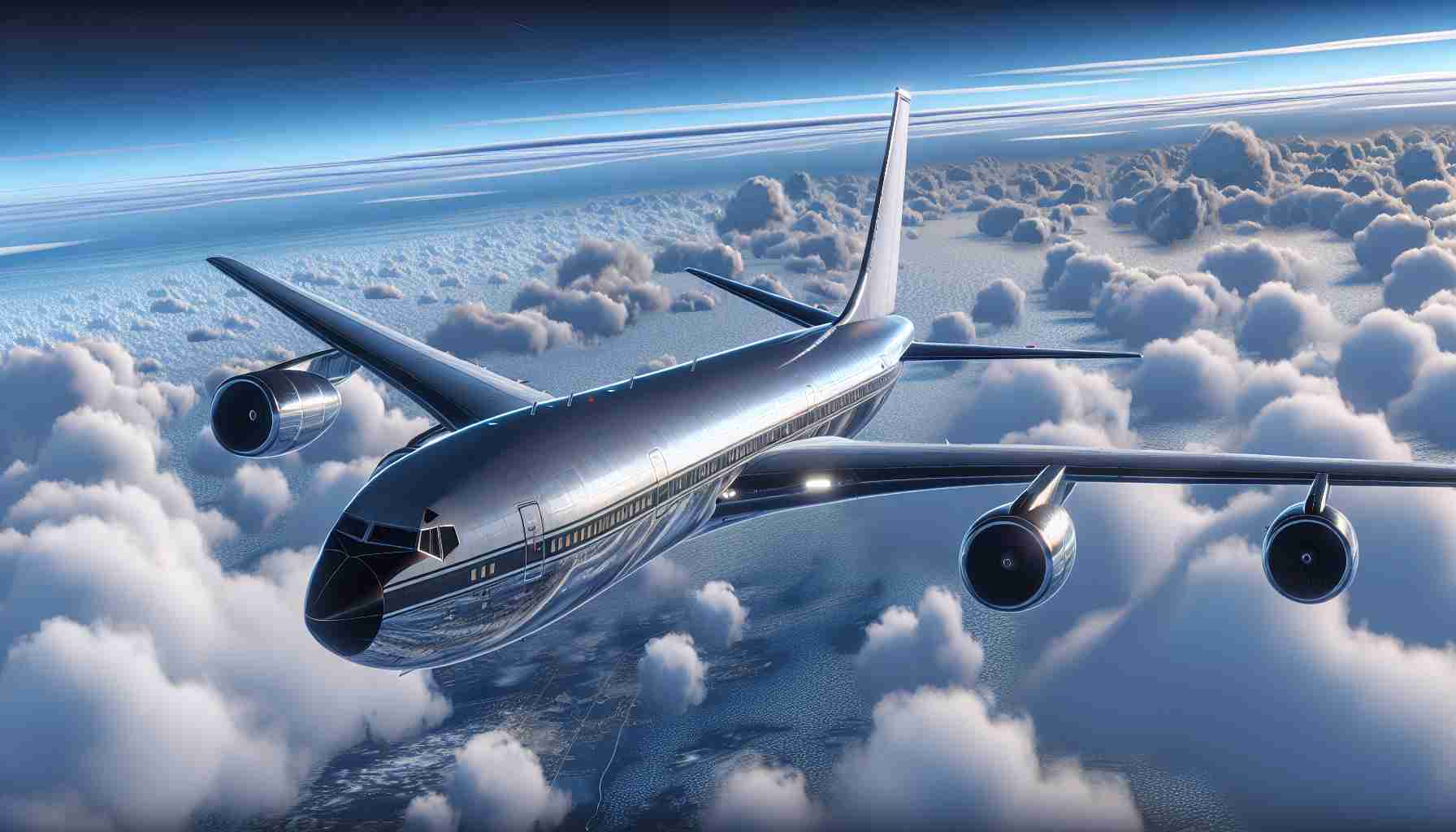Microsoft has unveiled an exciting addition to its Famous Flyer series, introducing the iconic Boeing 707-320C jet airliner. This aircraft is recognized for its pivotal role in ushering in the jet age and reshaping modern air travel. Now, aviation enthusiasts can explore this legendary quad-jet within Microsoft Flight Simulator.
Initially taking to the skies on December 20, 1957, the Boeing 707 began a new era in aviation, bringing forth a long-range jet design that fundamentally changed how people traveled by air. With its unique swept-wing aesthetics and powerful engines, it enabled direct, non-stop flights between continents, enhancing the air travel experience. Passengers relished the spacious and luxurious interiors, marking a significant shift toward comfort in the skies.
For this installment, Microsoft selected the Boeing 707-320C, a versatile version introduced in 1963 that allowed for passenger-to-freighter conversions. This model is powered by four Pratt & Whitney JT3D turbofans, providing an impressive range of over 3,300 miles and achieving cruising speeds of up to 525 knots. Users will have access to six distinct liveries, such as the historic PanAm and the vibrant Emerald Harbor.
Available for purchase at $14.99, the Famous Flyer #10 addition was developed in collaboration with Aeroplane Heaven, further enriching the flying experience for simulation enthusiasts.
Tips and Interesting Facts to Enhance Your Experience with the Boeing 707-320C in Flight Simulator
As you dive into the immersive world of Microsoft Flight Simulator with the Boeing 707-320C, there are a few tips and interesting facts that can enhance your experience both in the cockpit and in your everyday life. Let’s explore how to make the most of your simulation journey and draw parallels to real-world applications that can benefit you at school, work, and beyond.
1. Master the Basics of Flight Simulation
Before taking to the skies with the Boeing 707-320C, familiarize yourself with the basic controls and avionics of Flight Simulator. Understanding how to manage settings like navigation systems and throttle controls will help you gain confidence in flying. This foundational knowledge can apply to real-life situations where understanding technical systems is crucial, such as in engineering courses or when operating various software at work.
2. Embrace the History of Aviation
The Boeing 707-320C has a rich history that is worth studying. Learning about the aircraft’s role in the evolution of air travel can deepen your appreciation for aviation. This can also translate to broader learning—consider researching other innovations in technology or history in your studies or at your job. Drawing connections can enhance your understanding of progress in any field.
3. Utilize Flight Simulation for Team Building
Engaging in flight simulation can be a unique way to bond with colleagues or classmates. Organize virtual flying sessions where you can collaborate, share tips, and challenge each other to improve flight skills. Team activities promote camaraderie and can lead to more enjoyable work or study environments.
4. Plan Detailed Flight Paths
Exploring the extensive navigation features of the simulator can help develop your planning skills. In the cockpit, you need to plot flight paths and understand air traffic control (ATC) communications. Practicing this will sharpen your project management and organizational skills, which are highly beneficial in academic contexts or professional settings.
5. Appreciate the Design and Technology of the Boeing 707
Take time to understand the engineering marvels that enable the Boeing 707-320C to fly. Learning about the aircraft’s aerodynamics, such as its swept-wing design and powerful engines, can ignite an appreciation for STEM (science, technology, engineering, and mathematics). This knowledge will benefit you in many disciplines and can inspire a future career in aviation or engineering.
6. Practice Patience and Precision
Flight simulators require a strong sense of patience and precision, as flying, especially in challenging scenarios, demands focus and discipline. These are life skills that apply across various domains—be it during examinations at school or meeting deadlines at work. Developing these traits can lead to greater success in your endeavors.
7. Create Your Own Challenges
To keep your experience engaging, create personal flying challenges, such as long-haul flights or emergency scenarios. This can enhance your critical thinking and problem-solving skills. In real life, these skills can help you tackle challenges you face in your studies or career.
By exploring the legacy of the Boeing 707-320C and integrating these tips into your experience, you can not only enjoy your flight simulation adventures but also develop valuable life skills. Aviation is more than just flying; it’s about understanding, planning, and growing.
For more information on flight simulations and aviation, explore Microsoft’s official site.


















